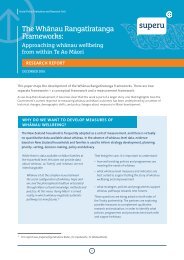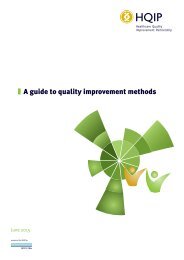2fyY1Py
2fyY1Py
2fyY1Py
Create successful ePaper yourself
Turn your PDF publications into a flip-book with our unique Google optimized e-Paper software.
Methods used to track users online and beyond<br />
Cookies: Small files placed on a user’s computer system that track and record users’ activities. Some cookies are used<br />
only for internal analytics or functionality (e.g. language preference, payment options), but many sites and platforms<br />
allow third parties such as advertising networks to place tracking cookies to collect information on users, to facilitate<br />
targeted marketing.<br />
Flash cookies: These files are more durable and persist after a browser has been cleared, thus allowing tracking after<br />
users believe they have been deleted.<br />
Zombie cookies: These files are even more durable than flash cookies, as they are re-created after a user has deleted<br />
them, allowing continued tracking.<br />
Device fingerprinting: Users are tracked across the devices they use (e.g. smartphone, tablet, laptop) to integrate<br />
marketing appeals and offers. “Canvas”-based fingerprinting operates with no indication that a user’s system is being<br />
fingerprinted.<br />
Device graphs or social graphs: Individuals’ (and families’) linked devices are identified, or a user’s personal digital<br />
connections are identified.<br />
Geo-location: Users’ exact location is mapped to deliver location-specific ads and promotions.<br />
On-boarding: Combines online with offline data to generate even richer consumer profiles<br />
Collated from references 76, 78–82<br />
The Children’s Online Privacy Protection Act (COPPA) in the USA (78) stipulates that personally identifiable information<br />
may not be collected from children under 13 years without verifiable parental consent and (since 2013) does not allow<br />
tracking across platforms with persistent identifiers, geo-location or behavioural advertising. COPPA applies to companies<br />
operating in the USA or collecting any data within the USA. As many companies internationally have applied this rule, it<br />
appears to have become the de facto international cut-off for online privacy protection. Its aim is to protect children and<br />
empower parents, and it is reported to have halted “some egregious predatory data practices” (95). Nevertheless, COPPA<br />
has substantial gaps, as it leaves children over the age of 13 years vulnerable. The FTC concedes that identifying and<br />
tracking children aged 13 years and over is a concern but continues to permit this. If children under 13 years lie about their<br />
age to access services for older children, which parents frequently assist them in doing (96, 97), or if parents give verifiable<br />
consent for their children’s data to be processed and thus to allow them to receive behavioural advertising, marketers and<br />
digital platforms are permitted to treat children under 13 years online as adults (78). This is a substantial concern: as one<br />
of COPPA’s original authors noted, the parental safeguard it provides is “increasingly ineffective”, as the parents of younger<br />
children “cannot be expected to understand the sophisticated and often opaque operations employed in today’s state-ofthe-art<br />
digital marketplace, or the risks posed by them” (44, p. 780).<br />
Furthermore, even when parents do not agree to the collection of personally identifiable information about their children,<br />
many sites and apps do so all the same. A survey of 1494 websites and apps “targeted at, or popular with children” across<br />
the world in 2015 by the Global Privacy Enforcement Network (98), conducted by 29 data protection authorities, found<br />
that many were not adhering to the COPPA regulations. Two thirds were collecting personal information without offering<br />
children or their parents adequate protective control to limit the use and disclosure of such information or a simple<br />
means of deleting an account permanently. For 40% of sites, the survey raised concern about the nature of the data<br />
being collected. Overall, therefore, COPPA appears to be largely ineffective: parents may agree to the collection of data on<br />
their young children, when giving them permission to play games or join certain sites, without realizing the implications;<br />
adolescents have no protection of any kind, and many sites and apps do not comply with COPPA in any case. Thus, children<br />
10






